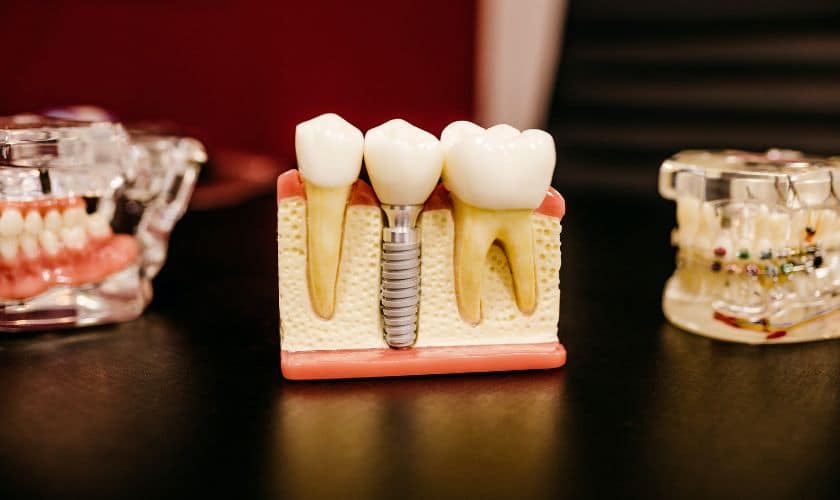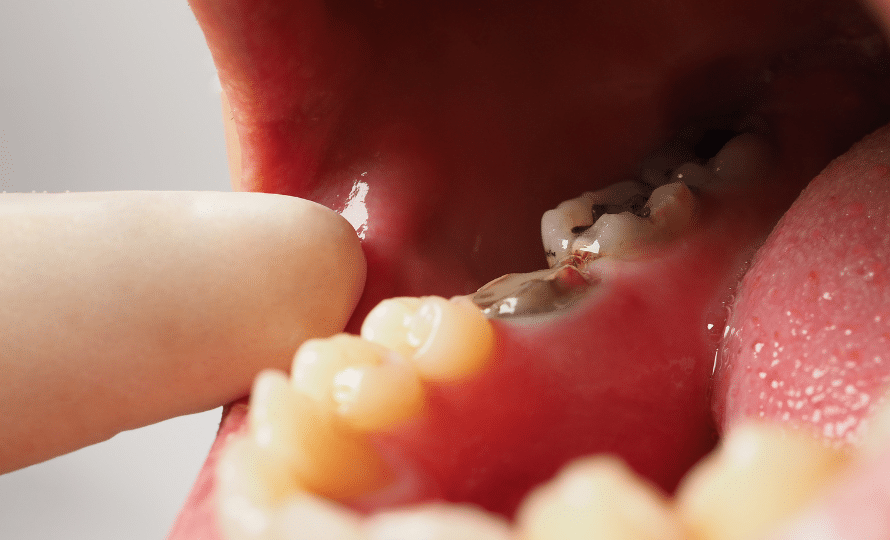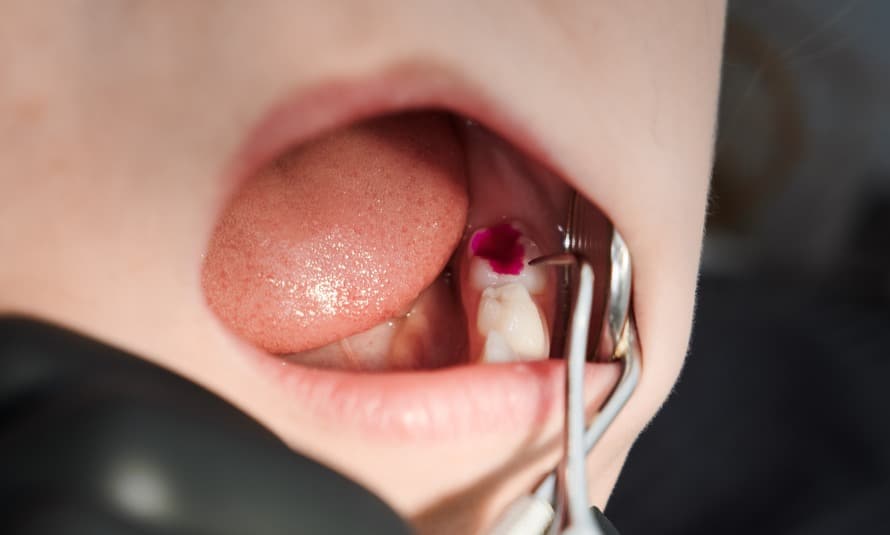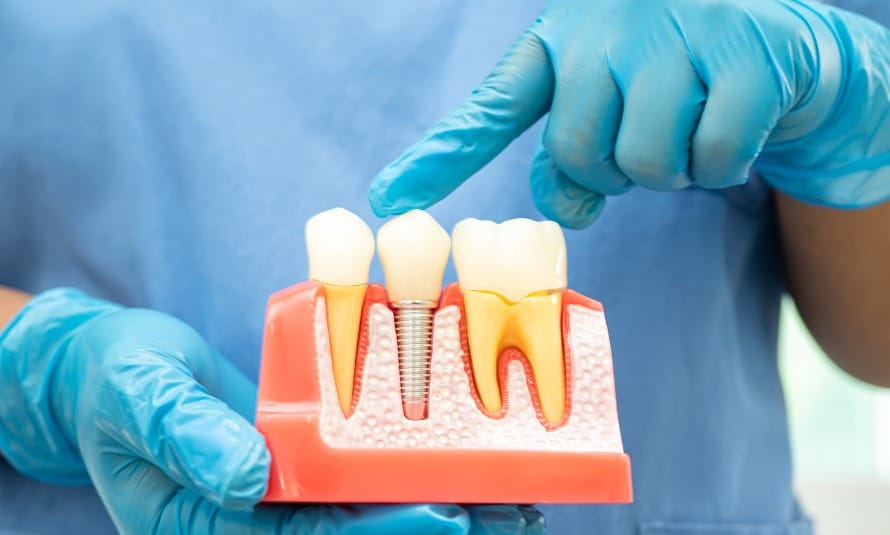Dental Implant Procedures for Diabetic Patients

Dental implants can be an excellent solution for individuals with missing teeth, but it’s important to understand how they work specifically for those with diabetes. In this article, we’ll explore the ins and outs of dental implants for diabetics, their benefits, and provide some helpful tips on post-procedure care. So let’s dive in and discover how dental implants can help transform your smile and restore your confidence!
Dental Implants For Diabetes Patients – What Are They?
Dental implants for diabetes patients are artificial tooth roots made of biocompatible materials such as titanium. They are surgically placed into the jawbone to support replacement teeth or dental bridges. These implants serve as a stable foundation and mimic the function of natural teeth.
One important factor to consider is that diabetes can affect oral health, leading to an increased risk of gum disease and tooth loss. However, with proper management and consultation with your dentist, dental implant procedures can still be a viable option for diabetic individuals.
During the initial evaluation, your dentist will assess your overall health condition, including blood sugar levels and any complications related to diabetes. This assessment helps determine if you’re suitable for dental implant surgery.
The procedure itself involves multiple steps. First, any remaining damaged teeth may need to be extracted. Then, the dental implant is carefully placed into the jawbone through a surgical process called osseointegration. Over time (usually several months), this post fuses with the surrounding bone tissue – ensuring stability and strength.
Once healing is complete, an abutment is attached to the post which serves as a connector between the implant and prosthetic tooth or bridge. Custom-made crowns or bridges are affixed onto these abutments – providing a natural-looking smile that functions just like real teeth!
It’s important to note that successful outcomes depend on maintaining good oral hygiene practices before and after surgery—especially for diabetic patients who may have unique challenges in managing their oral health due to potential complications from diabetes.
In our next sections, we’ll dive deeper into how dental implants work specifically for diabetes patients and explore their amazing benefits! So keep reading to discover more about this transformative solution for restoring smiles!
How Do Dental Implants Work For Diabetes Patients?
Dental implants are a popular solution for replacing missing teeth, even for patients with diabetes. But how exactly do dental implants work for diabetic patients? Let’s break it down.
It’s important to understand that dental implant procedures involve the insertion of titanium posts into the jawbone. These posts act as artificial tooth roots, providing a stable foundation for the replacement teeth. For diabetic patients, this process may require some additional precautions due to potential complications associated with diabetes.
One key consideration is controlling blood sugar levels before and after the implant procedure. High blood sugar can slow down healing and increase the risk of infections. Therefore, careful monitoring and management of blood glucose levels is essential during the entire treatment process.
Another important factor to consider is oral hygiene. Diabetic patients need to maintain excellent oral health to reduce the risk of gum disease or infections that could negatively impact implant success. Regular brushing, flossing, and professional cleanings are crucial in preventing complications.
Additionally, diabetic individuals may have compromised immune systems or delayed wound healing due to their condition. This means that extra attention must be given to post-operative care and follow-up visits to ensure proper healing and minimize any potential issues.
While dental implant procedures for diabetic patients require additional considerations compared to non-diabetic individuals, they can still be a viable option with proper planning and management by both the patient and the dental healthcare provider. The benefits of restored functionality and aesthetics make dental implants an attractive choice for many people living with diabetes who desire a confident smile!
What Are The Benefits Of Dental Implants For Diabetes Patients?
When it comes to dental implants, patients with diabetes can enjoy a number of benefits. One of the main advantages is that dental implants provide a long-lasting solution for missing teeth. Unlike dentures or bridges, which may need to be replaced over time, dental implants are designed to last for many years with proper care.
Another benefit is improved oral health. Diabetes can increase the risk of gum disease and tooth loss due to decreased blood flow and a weakened immune system. Dental implants help prevent further damage by replacing missing teeth and supporting overall oral health.
In addition, dental implants can improve chewing ability and speech clarity for diabetic patients. Missing teeth can make it difficult to properly chew food, leading to nutritional deficiencies. Dental implants restore normal biting force and allow individuals to enjoy a varied diet without restrictions.
Furthermore, dental implants have cosmetic benefits. They look and feel like natural teeth, enhancing the appearance of your smile and boosting self-confidence.
Dental implant procedures offer numerous advantages for diabetic patients including durability, improved oral health, enhanced functionality in eating and speaking as well as aesthetic enhancement – all contributing towards better overall quality of life.
How To Care For Dental Implants Post-Procedure
Caring for dental implants post-procedure is crucial to ensure their long-term success and maintain optimal oral health. Here are some essential tips on how to care for your dental implants:
Maintain A Good Oral Hygiene Routine: Brush your teeth twice a day using a soft-bristle toothbrush and fluoride toothpaste. Don’t forget to floss daily, gently sliding the floss around the implant area.
Avoid Smoking And Excessive Alcohol Consumption: These habits can hinder the healing process and increase the risk of complications.
Visit Your Dentist Regularly: Schedule regular check-ups with your dentist every six months or as recommended. This allows them to monitor the condition of your dental implants and address any potential issues early on.
Be Mindful Of What You Eat: Stick to a balanced diet that includes foods rich in vitamins, minerals, and protein, as these nutrients promote healthy bone growth and support implant stability.
Protect Against Teeth Grinding (Bruxism): If you have a habit of grinding or clenching your teeth, discuss this with your dentist who may recommend wearing a nightguard while sleeping to protect both natural teeth and implants from damage.
Avoid Using Tobacco Products: Smoking or chewing tobacco can compromise the healing process after implant surgery by reducing blood flow to the gums.
Remember, proper care is vital not only for maintaining healthy dental implants but also for overall oral health! By following these guidelines and working closely with your dentist, you can enjoy the benefits of stable and functional dental implants for years to come.
The Bottom Line
Dental implant procedures can be a viable option for diabetic patients who are missing teeth or have damaged teeth. These implants provide a long-lasting and natural-looking solution that can improve both the function and aesthetics of your smile.
By working closely with your dentist and healthcare team, you can ensure that you are a good candidate for dental implants. It is important to manage your diabetes well, keeping your blood sugar levels under control before undergoing any dental procedure.
Remember to follow proper oral hygiene practices after getting dental implants to maintain their longevity. Regular brushing, flossing, and visits to the dentist will help prevent any complications or infections.
If you are considering dental implants as a diabetic patient, consult with an experienced dentist who specializes in implant dentistry. They will assess your specific situation and determine if this treatment is right for you.
With proper care and maintenance, dental implants can restore not only your smile but also your confidence. Don’t let diabetes hold you back from achieving optimal oral health – talk to your dentist today about the possibility of getting dental implants!






